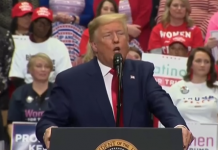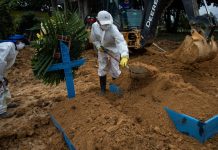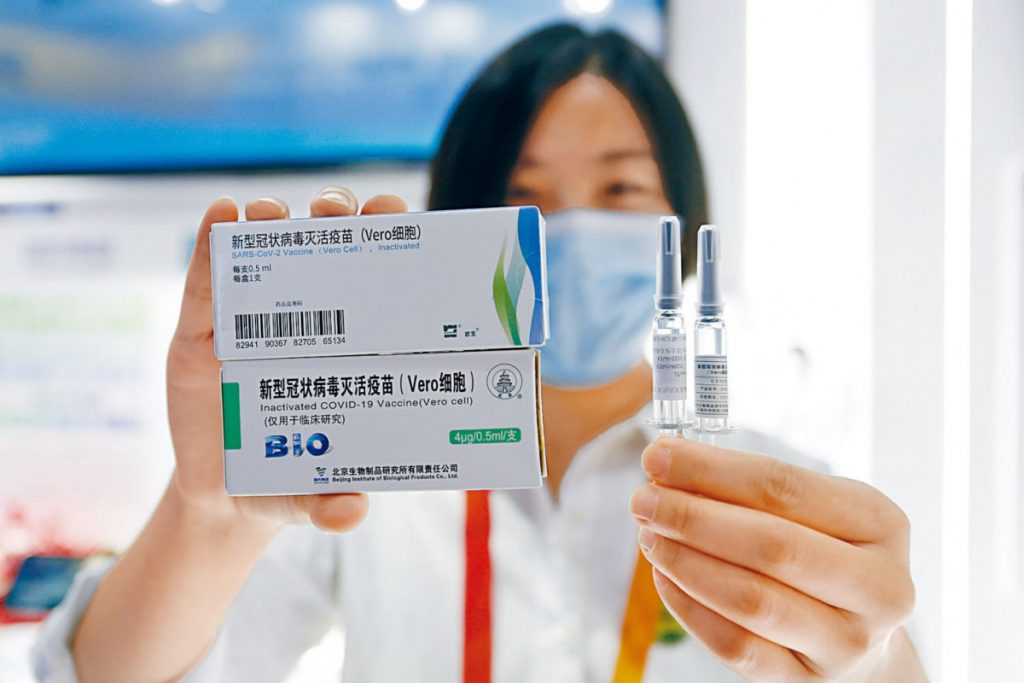
An article published this Tuesday (22) in the New York Times, considered one of the most respected and read newspapers in the US, made harsh criticisms of Chinese vaccines, including CoronaVac due to their low effectiveness in controlling the recent outbreaks of Covid in countries that have already vaccinated a large part of the population.
+ Brazilian variant infected many who had already recovered from Covid-19
The article titled “They trusted Chinese vaccines. Now they are fighting outbreaks” describes numerous countries, including Brazil, Chile and Argentina, which are using Chinese vaccines and with them are not managing to control the spread of the disease.
More than 90 countries are using doses of China’s vaccines against Covid. Experts say recent infections at these sites should serve as a wake-up call for the global effort to fight the disease.
+ It is FAKE that vaccines against Covid-19 cause mutations in humans
Mongolia has promised its people a “summer without covid”. Bahrain said there would be a “return to normal life”. The tiny island nation of Seychelles intended to boost its economy.
All three relied, at least in part, on easily accessible Chinese vaccines, which would allow them to launch ambitious inoculation programs when much of the world was experiencing it.
But instead of getting rid of the coronavirus, all three countries are now battling an outbreak of infections.
China began its vaccine diplomacy campaign last year, promising to provide an injection that would be safe and effective in preventing severe cases of Covid-19. At the time, there was less certainty about the success of this vaccine and other vaccines in reducing transmission.
Now, examples from several countries suggest that Chinese vaccines may not be very effective in preventing the spread of the virus, particularly the newer variants. The experiences of these countries reveal a harsh reality in a post-pandemic world: the degree of recovery may depend on the vaccines that governments administer to their people.
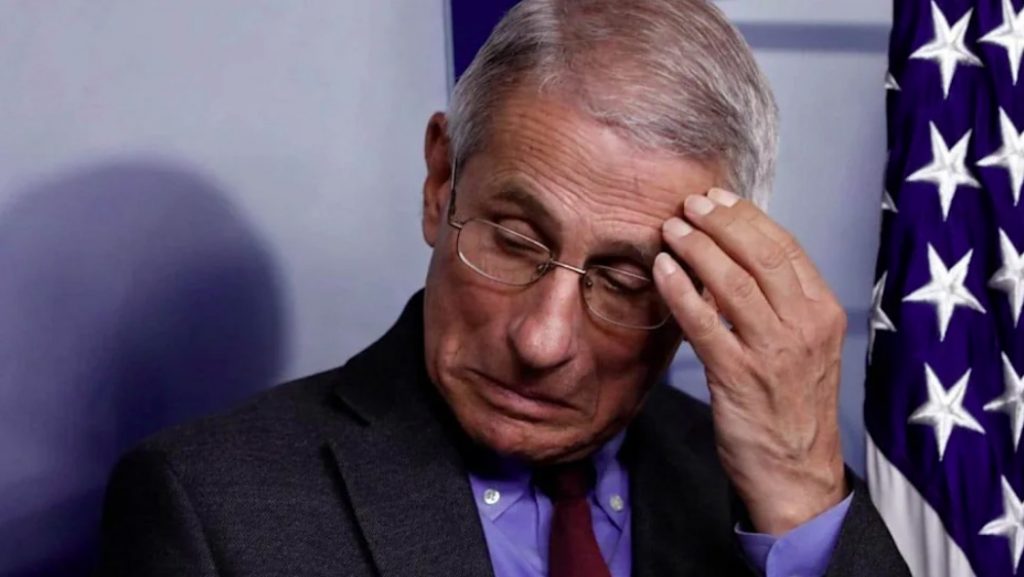
In Seychelles, Chile, Bahrain and Mongolia, 50 to 68 percent of populations were fully inoculated, surpassing the United States, according to the website Our World in Data, a data-tracking project. All four were ranked in the top 10 countries with Covid’s worst outbreaks last week, according to data from The New York Times. And all four are primarily using injections made by two Chinese vaccine makers, Sinopharm and Sinovac Biotech’s CoronaVac.
“If the vaccines are good enough, we shouldn’t see this pattern,” said Jin Dongyan, a virologist at the University of Hong Kong. “The Chinese have a responsibility to remedy this.”
Scientists are not sure why some countries with relatively high inoculation rates are experiencing new outbreaks. Variants, social controls that are eased too quickly, and careless behavior after just the first of a two-trial regimen are possibilities. But revolutionary infections can have lasting consequences.
In the United States, about 45% of the population is fully vaccinated, mainly with doses made by Pfizer-BioNTech and Moderna. Cases dropped 94% in six months.
Israel has provided Pfizer injections and has the second highest vaccination rate in the world, after Seychelles. The number of new Covid-19 cases confirmed daily per million in Israel now stands at about 4.95.
In Seychelles, which relied primarily on Sinopharm’s Chinese vaccine, that number is more than 716 cases per million.
Disparities like these can create a world in which three types of countries emerge from the pandemic – the rich nations that used their resources to secure the Pfizer-BioNTech and Moderna vaccine, the poorest countries that are far from immunizing the majority of citizens, and in then those that are fully inoculated but only partially protected.
China, like the 90+ nations that have received doses of Chinese vaccines, could end up in the third group, facing continual blockages, tests and limits in everyday life for months or years. Savings can remain withheld. And as more citizens question the effectiveness of Chinese doses, persuading unvaccinated people to line up for injections could also become more difficult.
A month after receiving his second dose of Sinopharm, Otgonjargal Baatar fell ill and tested positive for Covid-19. Otgonjargal, a 31-year-old citizen, spent nine days in a hospital in Ulaanbaatar, the capital of Mongolia. He said he was now questioning the usefulness of the injection.
“People were convinced that if we were vaccinated, the summer would be Covid free,” he said. “Now we find that it’s not true.
In Brazil, there are several cases of people who took two doses of CoronaVac and who, even so, contradict the Covid-19 virus, got sick and some even died.
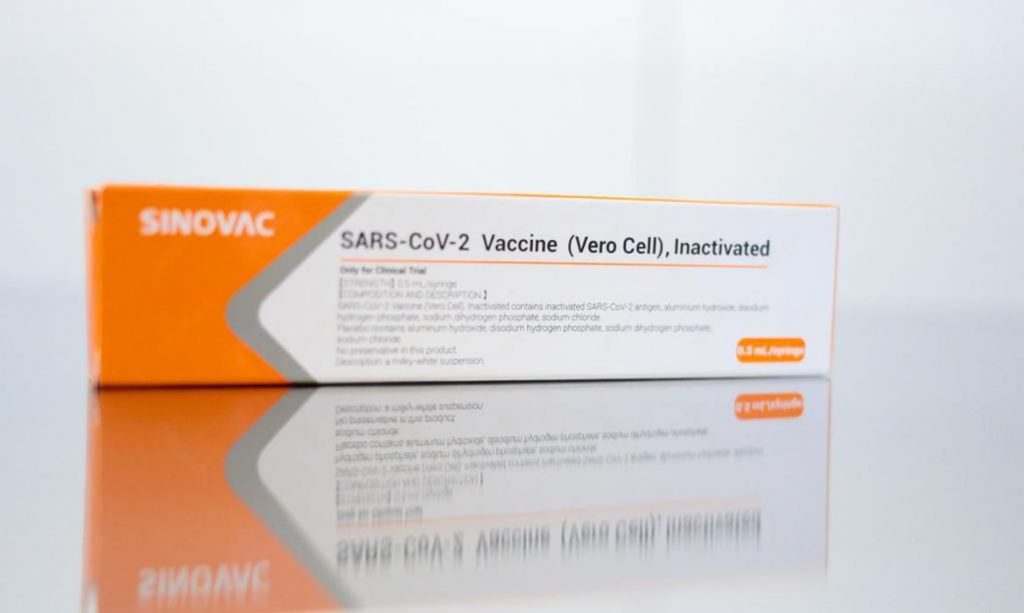
Beijing saw its vaccine diplomacy as an opportunity to emerge from the pandemic as a more influential global power. China’s top leader Xi Jinping has pledged to deliver a dose of Chinese vaccine that could be easily stored and transported to millions of people around the world. He called it a “global public good”.
Mongolia was the beneficiary, seizing the chance to get millions of doses of Sinopharm’s vaccine right. The small country quickly implemented a vaccination program and eased restrictions. It has already vaccinated 52% of its population. But last Sunday (20), the country registered 2,400 new infections, a quadruple compared to the previous month.
In a statement, China’s Foreign Ministry said it did not see a link between the recent outbreaks and its vaccines. He quoted the World Health Organization as saying that vaccination rates in certain countries had not reached sufficient levels to prevent outbreaks and that countries needed to continue to maintain controls.
“Relevant reports and data also show that many countries using China-made vaccines have expressed that they are safe and reliable – and have played a good role in their epidemic prevention efforts,” the ministry said. China also emphasized that its vaccines target serious diseases, not transmission.
No vaccine completely prevents transmission and people can still get sick after being inoculated, but the relatively low effectiveness rates of Chinese vaccines have been identified as a possible cause of recent outbreaks.
Pfizer-BioNTech and Moderna vaccines have efficacy rates of over 90 percent. A variety of other vaccines – including AstraZeneca and Johnson & Johnson – have efficacy rates of around 70 percent. The Sinopharm vaccine developed with the Beijing Institute of Biological Products has an efficacy rate of 78.1 percent; CoronaVac’s vaccine (from manufacturer Sinovac) has an efficacy rate of 51 percent.
Chinese companies have not released much clinical data to show how their vaccines work to prevent transmission. This Monday (21), Shao Yiming, an epidemiologist at the Chinese Center for Disease Control and Prevention, said China needed to fully vaccinate 80 to 85 percent of its population to gain mass immunity, revising an earlier official estimate of 70 Percent.
Data on unexpected infections were also not available, although a study by CoronaVac (manufactured by Sinovac) in Chile showed that the vaccine was less effective than those by Pfizer-BioNTech and Moderna in preventing infection among vaccinated individuals.
A Sinopharm representative hung up the phone when he was contacted for comment by the New York Times team. CoronaVac staff did not respond to a request for comment.
William Schaffner, medical director of the National Foundation for Infectious Diseases at Vanderbilt University in the US, said Chinese vaccine efficacy rates may be low enough “to sustain some transmission as well as create disease in a substantial amount in the highly population. vaccinated, although it keeps people away from the hospital. ”
Despite the increase in cases, authorities in Seychelles and Mongolia have defended the use of Sinopharm, saying it is effective in preventing severe cases of the disease.
Batbayar Ochirbat, lead researcher at the Mongolian Health Ministry’s Emergency Scientific Advisory Group, said Mongolia made the right decision in using the Chinese injection, in part because it helped keep the country’s death rate low. Data from Mongolia showed that Sinopharm’s vaccine actually was more protective than the doses developed by AstraZeneca and Sputnik, a Russian vaccine, according to the Ministry of Health.
The reason for the surge in Mongolia, said Batbayar, is that the country reopened very quickly and many people believed they were protected after just one dose.
“I guess you could say the Mongols celebrated too early,” he said. “My advice is that celebrations should start after full vaccinations, so that’s the lesson learned. There was a lot of trust.”
Some health officials and scientists are less confident.
Nikolai Petrovsky, a professor at Flinders University’s School of Medicine and Public Health in Australia, said that, with all the evidence, it would be reasonable to assume that Sinopharm’s vaccine had minimal effect on reducing transmission. A big risk with Chinese inoculation is that vaccinated people may have few or no symptoms and still spread the virus to others, he said.
“I think that complexity has been lost by most decision makers around the world.”
In Indonesia, where a new variant is spreading, more than 350 doctors and healthcare professionals have recently caught Covid-19, despite having been fully vaccinated with CoronaVac (from manufacturer Sinovac), according to the risk mitigation team at Indonesia Medical Association. Across the country, 61 doctors died between February and June 7th. Ten of them had taken the Chinese vaccine, the association said.
The numbers were enough to make Kenneth Mak, Singapore’s director of medical services, question the use of the CoronaVac vaccine. “It’s not a problem associated with Pfizer,” Mak said at a press conference on Friday (18). “In fact, this is a problem associated with the CoronaVac vaccine.”
Bahrain and the United Arab Emirates were the first two countries to approve the injection of Sinopharm, even before data from late-stage clinical trials were released. Since then, there have been extensive reports of vaccinated people becoming ill in both countries. In a statement, Bahrain’s government media office said the kingdom’s vaccine launch was “efficient and successful so far.”
Still, last month, authorities in Bahrain and the United Arab Emirates announced they would offer a third dose of reinforcement. Options: Pfizer or more Sinopharm.
PaiPee fact-checking content.

